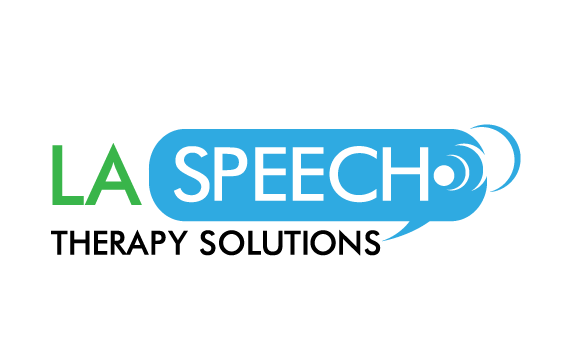
Are you interested in helping people overcome speech issues by diagnosing and treating disorders that affect and prevent communication? Does working with patients on a personal basis every day to help change their lives sound exciting to you?
If this sounds like the profession for you, begin taking these steps to start your fulfilling career as a speech pathologist.
What does a Speech Pathologist (also known as Speech-Language Pathologist) do exactly? Speech pathologists work together with their patients experiencing swallowing and communication disorders that may be a result of numerous conditions such as brain injury, stroke, developmental delay, Parkinson’s disease, hearing loss, autism or cleft palate. Speech pathologists commonly work with children and adults, and the adult sector is projected to quickly develop with the aging baby-boomer population.
Forecast For Speech Pathology Jobs
The career field of Speech Pathology is very lucrative and continues to grow. Labor statistics report that there is a projected growth of 18% from 2016 to the year 2026, which is much faster growth than the average for all other occupational fields. This only strengthens the fact that speech pathology has secured its spot in the top nine allied health careers that are experiencing the highest job security. Additionally, speech pathologist careers can fall into several different pathways. More than 50% of speech pathologists are employed in schools, and many others work in healthcare locations including nursing facilities, hospitals, in-home care, and more. This brings us to the question: what’s the best path to follow to become a Speech Pathologist? We’re sharing the top 5 tips to becoming a Speech Pathologist.
1. Have An Understanding Of The Importance Of A Speech Pathologist
Step 1 is to grasp the essential role speech pathologists play in the healthcare field. Almost 7.6% of adults, and 7.7% of American children aged 3-17 experience a speech, voice, language, or swallowing disorder in the past 12 months. A speech pathologist is essential in assisting these people in leading healthy, happy, and fulfilling life. There are typical duties a speech pathologist finds themself doing in the day-to-day, including:
- Assessing difficulty levels of swallowing, speech, and language, including treatment options. Curating personalized plans for treatment that address the specific needs of the individual.
- Educating adults and children on how to make sounds and improve their voice.
- Refining the sentence structure and vocabulary in written and oral communication. Sharing techniques to cultivate the patient’s language fluency and voice pitch.
- Evaluating and overseeing patient progress.
- Strengthening and developing the muscles used in swallowing.
- Offering counseling sessions to individuals coping with the disorder as well as their families.
Each career path is unique, and depending on yours, some of these aspects may vary. Speech pathologists engage with all ranges of ages, and locations, including hospitals, schools, clinics, and private practices alike. Additionally, when you become a Speech pathologist, you’ll work alongside a wide variety of other professionals such as psychologists, teachers, physicians, and social workers. It is a possibility to chose to focus your work on a specific swallowing or communication issue in relation to a cleft palate, or autism.
2. Receive Your Communication Sciences and Disorders Bachelor’s Degree
With a full grasp of the importance of speech pathology, the education to jump-start your career is the necessary next step. A bachelor’s degree is required for this position and would be your first step. While there is not a specific degree offered in speech pathology, a related degree such as communication science and disorders is what most students obtain. This degree will allow you to take the next step, which is to gain admission to a graduate program in speech pathology. Some of the things you can expect to learn throughout your bachelor’s degree education include language function and development, and you will also satisfy your first requirements in clinical experience. The classes you can expect to take are language-related, such as audiology, linguistics, phonetics, psychology, and of course general science. Your communication sciences and disorders bachelor’s degree is a four-year program offered at most traditional universities and online approved programs and is a necessary step to becoming a speech pathologist. It is critical to maintaining the highest GPA possible in order to gain acceptance into a graduate degree program.

3. Receive Your Master’s Degree in Speech Pathology
After earning your bachelor’s degree, your next step is to receive your speech pathology master’s degree. It is also important to ensure that your degree has been accredited by the (CAA) or the Council on Academic Accreditation in Audiology and Speech-Language Pathology. The CAA accredited programs have met all standards for compliance, which will allow you to receive the training and education necessary to become a successful speech pathologist. The master’s program will introduce you to these concepts:
- Literacy
- Neurological substrates
- Voice articulation
- Phonology
You might also have the opportunity to develop your educational path in areas such as early intervention and neurogenic disorders. At least 400 hours of supervised clinical practicums are a part of the speech pathology master program. In these practices, you will learn to diagnose, treat, and assist a wide variety of patients from a variety of linguistic and socioeconomic backgrounds. The minimum requirement for graduation includes observation throughout your clinical experience, during which you will be supervised for at least 25 hours, and spend 375 hours of direct patient/client contact. Some students work towards becoming bilingual in order to assist in the job search after graduating. Fluency in multiple languages will offer many more job opportunities, which will assist the development of in-depth speech-language skills. An additional step many master’s degree students take prior to entering the workforce as a speech pathologist is to join a clinical fellowship and participate. A fellowship will usually last up to 36 weeks, and also provide an opportunity for full-time employment as a speech pathologist.
4. Achieve Your State Speech Pathology Certification
Following your master’s degree, the next move is to receive your state certification in speech pathology. The credentials are given through the American Speech-Language-Hearing Association (ASHA) and are done through clinical practices, continuing education, and academic programs. In order to receive your certification, you must complete these steps (yes, there’s more): 400 hours of clinical experience under supervision, that’s 375 of patient/client contact, and 25 of clinical observation.
36 weeks of clinical practice to make up your Clinical Fellowship Year. You must work a minimum of 5 hours weekly. 3. Earn a passing score on the Praxis Exam, which is required for a state teaching certificate and license. Finally, earning your CCC (Certificate of Clinical Competence) gives you a leg up for employment.
To work in a school setting, you might also be required to have a state teaching certificate, this is something you would need to consult with your state education board or employer for a requirements list. It is important to check the requirements for a speech pathologist license for your state, as the requirements vary.
5. Continue Your Speech Pathology Education
Earning your master’s degree is the last official step to becoming a speech pathologist, but many choose to continue their education adn expand the opportunities available to them.
Actually, for license renewal, some areas might require an additional amount of (CEUs) or continuing education credits. This is something you can check with your employer in order to be best prepared for a successful career in speech pathology. You can achieve these credits in multiple different ways, such as attending seminars, participating in workshops, or completing courses. While CEUs are not required in every state, they are a great way to take advantage of educational opportunities and stay up-to-date on industry trends and standards. These credits are also irreplaceable assets for resume building and improving your speech pathology career path.
Speech Pathologist Tips Conclusion
The speech pathology career field is rewarding and exciting and offers long-lasting incredible job opportunities. Don’t forget these important tips in your journey towards becoming a speech pathologist:
- Have An Understanding Of The Importance Of A Speech Pathologist
- Receive Your Communication Sciences and Disorders Bachelor’s Degree
- Receive Your Master’s Degree in Speech Pathology
- Achieve Your State Speech Pathology Certification
- Continue Your Speech Pathology Education
- Secure your dream job






